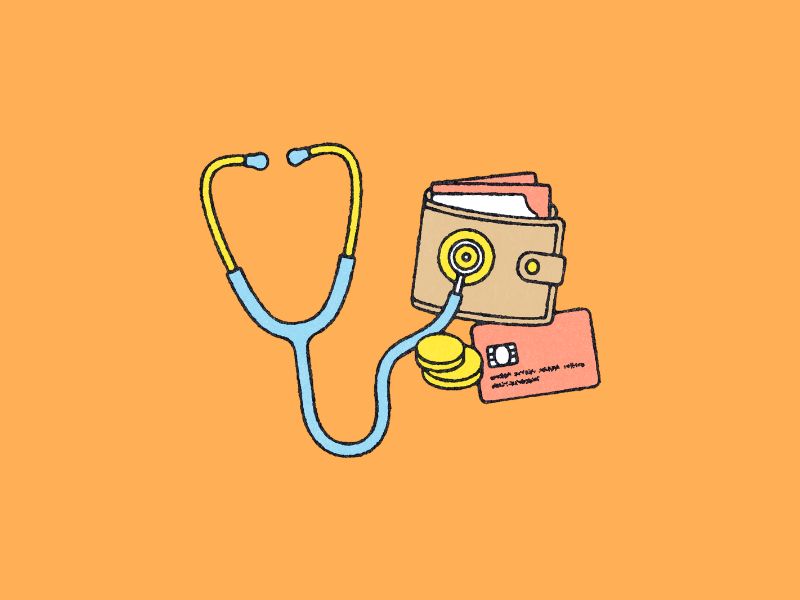
The impact of the cost-of-living crisis on credit scores
Learn how the cost-of-living crisis could impact your credit score and what you can do if you're facing financial issues.
The cost-of-living crisis may have increased the prices of various goods and services, but it has also highlighted the importance of maintaining a good credit score. Households are re-evaluating their budgets, exploring resources to save money, and managing credit wherever possible.
Although the rising cost of living doesn’t directly affect credit scores, the potential knock-on effect on your finances during these times can. We’ll take a closer look at how that can happen, along with some options if the price increases make it challenging to stretch your monthly budget.
How can the cost-of-living crisis affect your credit score?
With prices and bills rising quicker than wages, many households find themselves with shrinking disposable income and struggling to pay their bills. For instance, the energy price cap increased by 12% in 2021 and 54% in 2022.
Some families couldn’t afford the large increase in energy costs and subsequently fell into debt. Others have resorted to using credit cards and personal loans to plug gaps in their budgets. But as the cost-of-living crisis continues, continued borrowing has increased people’s credit utilisation rate — the percentage of their credit limit they’re using.
A credit utilisation rate higher than 30-40% could affect future credit applications, as lenders may think further credit would be unaffordable for you to repay.
For some families, the effects of higher cost of living go even further. Some may be in arrears or have defaulted on their bills, which is reported to the UK credit reference agencies—Experian, Equifax, and TransUnion. Adverse information on a credit report (such as missed payments or defaulted accounts) will stay for six years and will have a negative impact the whole time.
What caused the cost-of-living crisis?
Several factors have contributed to the rising cost of living, all happening within a few years of each other:
COVID-19 Pandemic: The pandemic caused the prices of goods to skyrocket due to the reduced ability to access them. Global lockdowns and high levels of unemployment caused supply-chain disruptions, driving prices up while supplies remained low.
Brexit: The UK’s decision to leave the European Union has caused additional import and processing charges for everyday goods. A 2022 report by the think tank UK in a Changing Europe found that Brexit has increased the cost of food by 6%.
Climate change: Severe weather, such as extended droughts and higher-than-normal rainfall, has impacted harvests worldwide. In the UK alone, the 2023 wheat harvest was 10% less than the 2022 harvest due to heavy rains, according to official Government statistics.
Russian Invasion of Ukraine: Both countries were major players in the global market. Embargoes against Russian industries have increased global fuel and energy prices, while the Ukrainian blockade has affected global grain imports. The war has increased the overall cost of transporting goods worldwide, and the demand of goods sourced from alternate locations.
Inflation: Strong demand for consumer goods, global supply chain disruptions, and soaring energy prices for businesses and households caused a sharp increase in the UK inflation rate. The Bank of England increased the base rate several times to lower the inflation rate; however, this caused an increase in interest rates, making mortgages and rent more expensive.
How do you maintain a good credit score during the cost-of-living crisis?
Even during difficult times, there are a few things you can do to keep your credit score on the right track:
Check you’re on the Electoral Roll: Being on the Electoral Roll at your current address helps your credit score and makes credit applications go more smoothly. Lenders use this information to verify your details; if it’s missing or doesn’t match the name and address on your application, you could get declined or be subject to further ID checks.
Make sure your information is up-to-date: If you’ve recently moved or changed your name, inform your bank and lender(s) right away so they can keep your account details up to date. They will pass this information to the credit reference agencies—Experian, Equifax, or TransUnion—that they report to. An address mismatch during a credit application could delay or decline your application.
Consider using direct debit for monthly payments: Setting up a direct debit can help avoid accidentally missing recurring payments.
Use an eligibility checker before applying for new credit: Eligibility checkers let you see your chances of approval without affecting your credit score by performing a soft credit search. Soft searches don’t affect your credit rating as they don’t signal an actual application for credit. An application for new credit requires a hard credit check on your credit report, which is recorded regardless of the result. Too many hard credit checks in a short time can negatively affect your credit score and the outcome of credit applications, as it gives lenders the impression that you may have been repeatedly declined or that you’ve been recently granted a lot of new credit. This could make them question the affordability of any new credit facility you request.
Check your credit report regularly: Checking your credit report may not help you increase your credit score directly, but keeping track of your position will mean you can make informed financial decisions. It also means you should be able to spot any errors or fraudulent activity sooner, should this occur. You can then dispute and correct these errors, so you can prevent them from affecting your credit score.
Check your credit report with Checkmyfile now and see the most detailed credit report you can get.
What to do if you need help during the cost-of-living crisis
If you’re struggling with your bills and general expenses due to the impact of cost increases, here are some resources that might help:
Contact your utility supplier for assistance
Contact your supplier if you’re having a hard time with your utility bills (energy, water, broadband, or mobile). Depending on your situation, they may be able to:
Reduce your tariff based on your income.
Offer a “payment break” (a pause on your regular payments in the coming months) while you get your finances back on track.
Set up a debt payment plan if you owe your provider.
Give you access to energy debt grants. Citizens Advice has a list of energy companies that offer grants.
Advise how to reduce your usage.
Give advice on how to increase your home’s energy efficiency.
Before making any changes to your credit agreements, it’s always important to check if it will impact your credit score so that you can make an informed decision.
Those who receive means-tested benefits, such as Universal Credit or Pension Credit, may also be eligible to switch to a “social tariff.” Social tariffs allow people with low income to pay a lower monthly bill while still receiving essential services. Eligibility differs per supplier, so check these sites for details:
There’s no social tariff scheme for energy bills, but Ofgem and Citizens Advice have compiled a list of ways you can get support with your energy costs.
Support from the government
Depending on where you live, additional support is available to help you with your expenses, such as rent, energy bills, and childcare. You can learn more from your National Government’s website:
Professional advice for debt management
If you’re feeling overwhelmed with the effects of the cost-of-living crisis and need expert advice to help get things sorted, you can get free and impartial debt advice from:
Gov.uk has compiled a list of organisations that provide free debt management advice in England and Wales. If you’re in Scotland or Northern Ireland, their respective websites can direct you to an organisation that’s local to you.
Alternatively, MoneyHelper’s debt advice locator tool can help you find online, telephone, or face-to-face debt advice services near you.
Local food banks or community pantries
Community pantries and local food banks can help provide food and other essential items at little to no cost. These websites can help you find local food banks and pantries near you:
Not all pantries and food banks are listed, but Citizens Advice should be able to help you locate any near you.
Recap: How does the cost-of-living crisis affect credit scores?
Remember: the cost-of-living crisis may not impact your credit score directly, but any knock on effects on your finances can.
Households may increasingly turn to credit to supplement their monthly outgoings as prices and bills increase. However, managing those credit agreements positively is vital to keeping your credit health on track.
Lastly, if you’re having trouble making monthly payments due to higher costs, it's important to contact your lender or service provider for assistance. They can help you set up a plan to get your account back on track.
Take your credit health into your hands
Managing your credit health is about so much more than knowing your credit score. From joint accounts to registering to vote, your credit history is as colourful as your life history. That’s why Checkmyfile lets you see it all. Get started now
